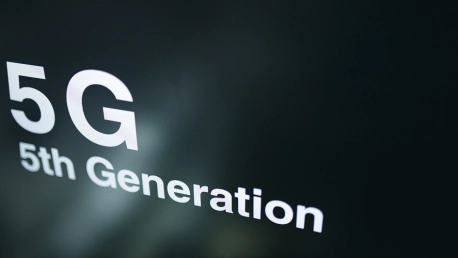The advent of 5G technology has brought about many changes in the world of communication and has been dubbed the next big thing in mobile networks. The faster download speeds and higher network reliability offered by 5G technology are set to revolutionize the way we use and access the internet. However, despite its many benefits, the deployment of 5G technology has raised some concerns about its potential health risks. In this article, we’ll take a look at the most common health concerns regarding 5G, and we’ll go through some recent studies to try to shed some light on whether these concerns are grounded in fact or not.
Common Health Concerns Regarding 5G
Electromagnetic Radiation
One of the biggest concerns regarding 5G technology is the increase in exposure to electromagnetic radiation (EMR). The growing use of 5G will lead to an increase in the number of antennas and cell towers, which will, in turn, increase people’s exposure to EMR. Although there is no scientific evidence suggesting that EMR exposure is harmful to human health, the World Health Organization has classified it as a possible carcinogen.
Impact on Insects and Animals
There are concerns that the deployment of 5G technology could have a negative impact on insects and animals. Studies have shown that exposure to EMR from cell towers and antennas can affect the navigation and communication of birds and other species. The impact of 5G on insects and animals is still being studied, and it is unclear whether the increased exposure to EMR will have a significant impact on these populations.
Effects on Children
Children are often seen as the most vulnerable group to the potential health risks posed by 5G technology. Some studies have pointed out that the developing brain is more susceptible to the effects of EMR exposure, and that children may be at a higher risk for developing cancer and other health problems. However, it is important to note that these studies are still ongoing, and there is no conclusive evidence to support these claims.
Impact on Weather
Some experts have expressed concerns that the deployment of 5G technology could have an impact on the weather. The high frequency of 5G is said to interfere with water molecules in the atmosphere, which could lead to changes in weather patterns. However, this is still a controversial issue, and there is limited scientific evidence to support these claims.
Impact on Mental Health
There are also concerns that the increased exposure to EMR from 5G technology could have an impact on mental health. Some studies have revealed that exposure to EMR from cell phones and other wireless devices can lead to symptoms of depression, anxiety, and sleep disturbance. However, these studies are still ongoing, and more research is needed to determine the effects of EMR on mental health.
What Recent Studies Discovered
The potential health risks posed by 5G technology are still being studied, and more research is needed to fully understand the potential impact of this new technology. It is important to approach the potential health concerns regarding 5G with caution and to continue to monitor the ongoing research in this field.
In the 2018 study called “Radiofrequency electromagnetic fields and some cancers of unknown etiology: An ecological study,” authors Myrtill Simkó and Frank Gosselin aimed to investigate the association between radiofrequency electromagnetic field (RF-EMF) exposure from mobile phone base stations (including 3G and 4G technologies) and the incidence of various cancers of unknown etiology.
The study found no evidence of an increased risk of cancers of unknown etiology associated with RF-EMF exposure from mobile phone base stations. The authors concluded that the results do not support the hypothesis of a carcinogenic effect caused by exposure to RF-EMF emitted by mobile phone base stations. It is worth noting that this particular study does not specifically focus on 5G technology, but rather investigated the potential health effects of RF-EMF exposure from mobile phone base stations in general. Nevertheless, it provides insights into the broader field of research related to the health effects of electromagnetic fields.
The 2019 study titled “Human Exposure to RF Fields in 5G Downlink” aimed to assess the exposure of individuals to radiofrequency (RF) fields in the downlink of 5G networks. The researchers conducted measurements to evaluate the RF field levels in various environments, including outdoor and indoor scenarios, and compared the results with the exposure limits set by international guidelines.
The study found that the RF field levels measured in the downlink of 5G networks were well below the exposure limits established by international guidelines. The authors concluded that, based on their measurements, the deployment of 5G networks was not expected to cause significant health risks from RF exposure as long as the exposure levels remained below the established safety limits. This study provides measurements of RF field levels in the downlink of 5G networks and demonstrates that the exposure levels observed were below international guidelines. It suggests that, when 5G networks are implemented and operated within established safety limits, the associated RF exposure is not expected to pose significant health risks.
In another study published in 2021, a team of scientists determined that long-term exposure to 4G cell phone radiation has detrimental effects on anxiety-like behavior and changes in the morphological architecture of the hippocampus in mice.









